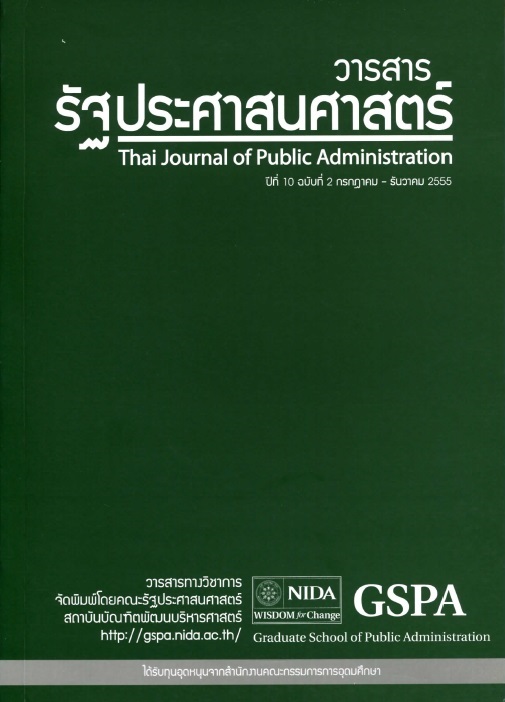Weaknesses of Studies on People’s Participation in Public Policymaking in Thailand
Keywords:
Participation, Development, Participation in Projects, Participatory DevelopmentAbstract
This article is a meta-analysis of 53 research studies conducted between 2002-2008 on people’s participation in public policymaking in Thailand. The review identifies essential features, analyzes the knowledge boundaries, and identifies strengths and weaknesses of the research. The results of the meta-analysis show moderate levels of participation, using field surveys as the main data collection method. Participation categories comprised civil society, resource and environment, public health, internal peace, local government, and community development. Research methodology was restricted to survey research only, and people’s participation was informed by the World Bank’s conceptualization in the 1980s. This extended to participation in thinking, decision-making, implementing, sharing benefits, and monitoring and evaluating developmental projects. Weaknesses of the research included questionable validity of the research findings owing to inadequate methodologies, as well as out-of-date conceptualizations of people’s participation, where little attention was paid to the idea of people as the target of development. Other weaknesses included misunderstanding the purpose of participation, incorrect conclusions, confusion between normal conduct and participatory activities, and problems in the specification of cause-effect relationships. However, the research studies had two key strengths: they served to identify the characteristics of participation as well as behavioral problems associated with participation, and several studies did in fact focus on people as the target of development.



